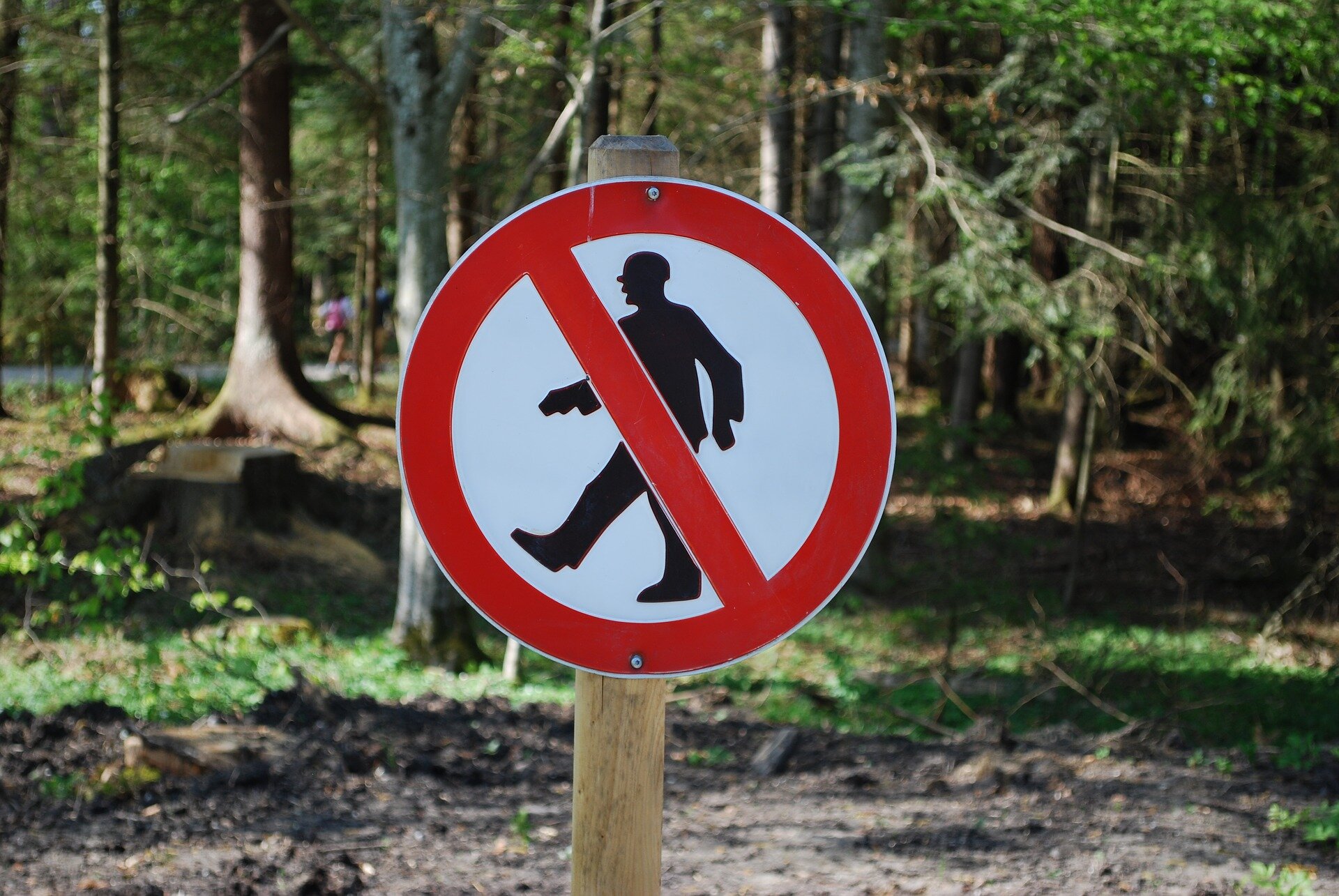Blogging Nietzsche—Nietzsche's Poetry: "Caution"
Continuing my series on the philosophical analysis of Nietzsche’s poetry, I come to Nietzsche’s short poem “Caution” (Nietzsche, The Gay Science, ‘Joke, Cunning, and Revenge’: Prelude in German Rhymes, No. 37):
37. Caution
Into that region trav’lers must not go:
And if you’re smart, be cautious even so!
They lure and love you till you’re torn apart:
They’re halfwit zealots — : witless from the heart!
According to Nietzsche, the world is full of people who play it safe, unwilling to step out of the norm or break from the herd, to follow an unknown path (the one "less traveled by” as Robert Frost once called it) instead of a more familiar one.
The reasons for this are many. We humans are naturally herd-like, having been forced to band together in family groups and primitive societies to be able to survive, being relatively weak creatures compared to the other, mightier beasts of the Earth. At some point, Nietzsche claims, we invented Western / Judeo-Christian morality, both as a way of inverting the power relationships for those who were historically slaves and as a way of positively (and often negatively!) reinforcing the social behaviors that sustain the human herd.
Because of this herd-like human culture, there are always moralizers who stand ready to tell others what they should and should not be doing, and which well-trodden path they ought to follow, whether in the name of caution, as the title of Nietzsche’s poem suggests, or in the name of the popular morality of the day.
It takes courage and confidence in yourself and your own ability to cope to be able to break with the herd and follow your own path, especially when it’s a path that few people before you have traveled, or even a path that no one has traveled, before. As the second line of Nietzsche’s poem makes clear, the moralizers suggest caution even if you stay on the main roads of life—caution through and through!
The third line of the poem is quite interesting. Nietzsche is claiming that those who always urge caution are like wolves in sheep’s clothing, luring you in with their pseudo-caring words in hope to make you disciples of themselves, those bishops and evangelizers of the common way of life who can’t imagine life, morality, or humanity any differently than what they have inherited. They feign care for your wellbeing while propping themselves up in positions of power all the while, no matter the cost to your soul, your own wellbeing, or the strength of your character. They will tear apart your autonomy and your truest self, piece by piece.
Nietzsche’s gloves are off in the last line of the poem, in calling the caution-urging moralizers “halfwit zealots,” witless from the heart. And yet we all know people like this, uncritical religious-types who have lost, or most likely never developed in the first place, their ability to look at their own lives, their own beliefs, and their overall worldview critically, choosing the path of caution and staying comfortably with what the herd before them has handed to them, while forgetting that even in the herd someone has to be out in front, if only to have blazed the path of future conformity in the first place!
As you think about your own life, where have you yourself clung to safety and security, afraid to wander off the beaten path, afraid to break with the herd, or afraid to be your most authentic self? What risks do you know in your own heart that you need to take but from which you find yourself cowering in fear, afraid to cross over some invisible guardrail that someone else has placed around your life? Which parts of your life are being run by “halfwit zealots,” as Nietzsche so bluntly puts it?
Only you can cross the line, jump over the guardrail, and reclaim the autonomy that the halfwit zealots of this world would too easily rob from you. In other words, only you can define what your own best life is, even if it means not being able to see around the bends of the makeshift path you end up choosing to follow—even better by blazing a new trail into the wilderness of life for the very first time. At least you will have chosen your path for yourself, even if you stumble a time or two along the way when the going gets tough. Just don’t turn back or fail to stay the course out of fear or out of witless caution.
Even if you do ultimately decide to stay with the herd on the well-beaten path of life, of your own free will, don’t do it cautiously or merely out of fear. Do so only deliberately and authentically from within because it’s the life you most want to live, having explored for yourself every fork in the road for as far ahead as your mind’e eye can see.









